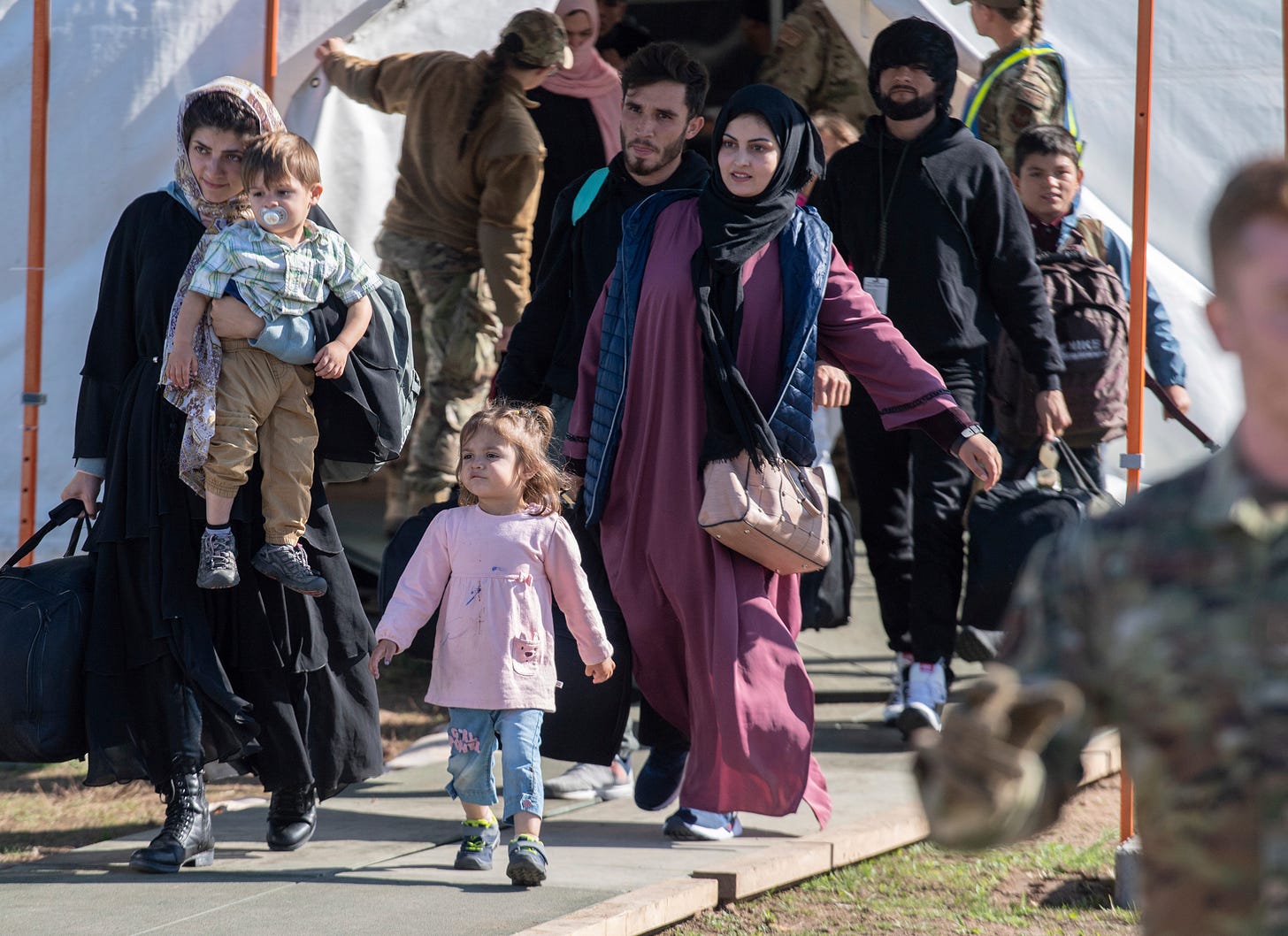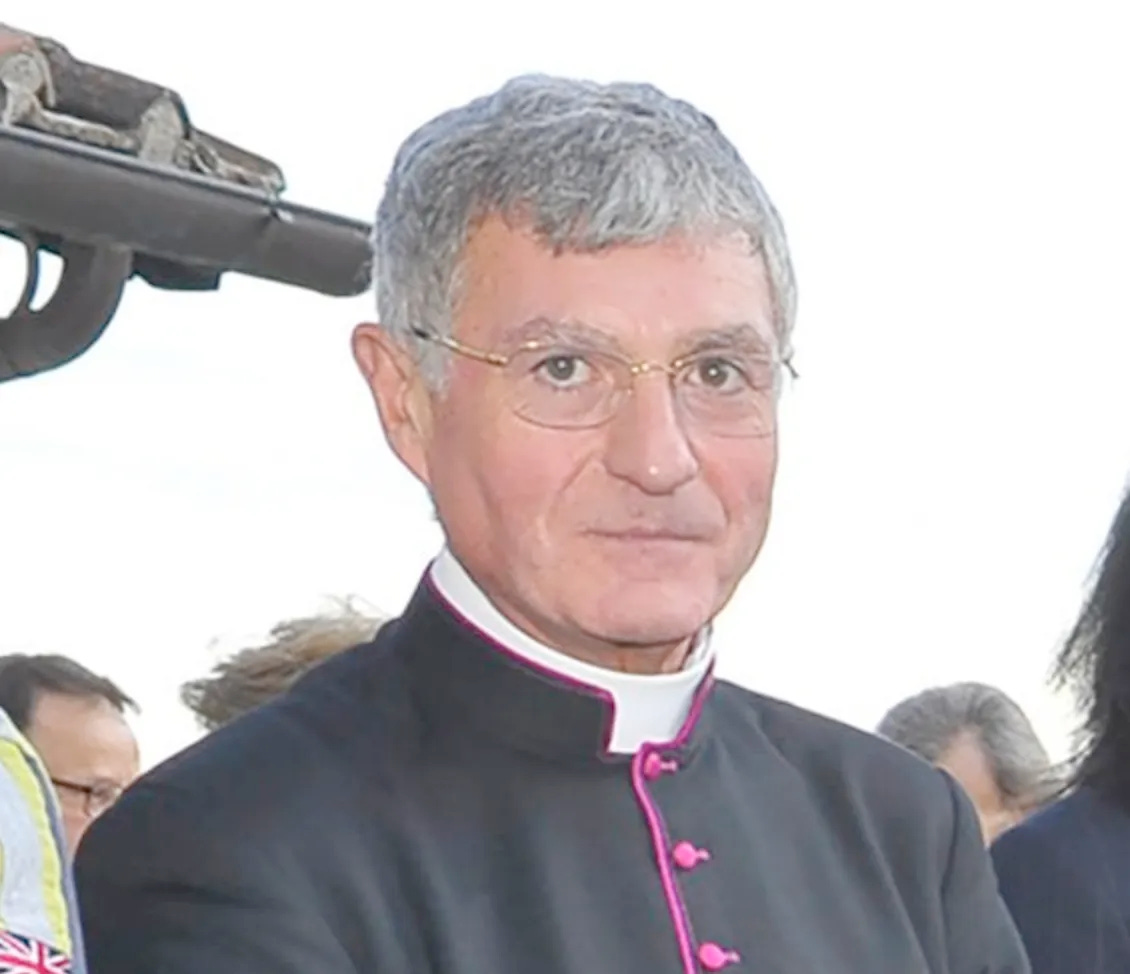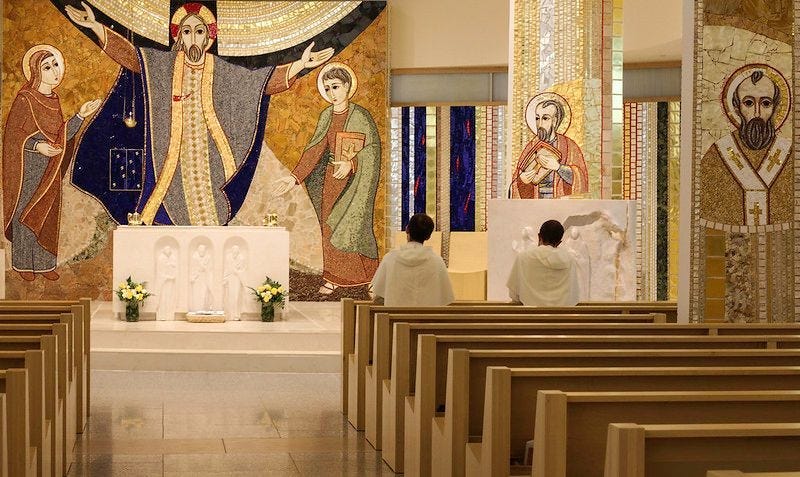When the Taliban regained control of Afghanistan after U.S. troops were pulled from the country in August, hundreds of thousands of Afghans began trying to flee the ensuing violence and chaos in search of a new home. As refugees from a destabilized country, they found themselves in need of food, housing and basic necessities almost overnight.

When these refugees began arriving in the United States, Catholic Charities agencies across the country were ready to help facilitate their new beginnings.
“We were first called to work with the refugee and immigrant when Mary and Joseph fled from Bethlehem,” said Jessi Riesenberg, senior director of outreach and development at Catholic Charities in Oklahoma City. “We harbor the immigrant and refugee knowing that [the Holy Family] was the icon for what we needed to do. We should see Christ in everyone.”
It’s a familiar role for Catholic Charities, as the network of regional organizations is one of the United States’ largest providers of refugee and migrant support. Operating under the umbrella of the U.S. bishops’ conference – which is responsible for nearly 1 in 5 refugees received into the U.S. – Catholic Charities agencies gave shelter or respite services to 160,000 asylum seekers across the United States in 2020.
And with the Biden administration pledging to increase the country’s annual refugee admissions to 125,000 in 2022 – almost double the previous year’s cap of 62,500 – Riesenberg and other Catholic Charities leaders are committed to carrying out their refugee work because, she told The Pillar, it’s how they live out their Christian vocation.
“We truly do believe that our work in this arena is pro-life work,” Riesenberg said. “We don’t just claim it when it comes to the adoption of babies. [It’s about] the real and true pro-life approach of seeing the human dignity that’s in everyone and making sure that we are a universal church are present to everyone.”
A broad ministry
What exactly do refugee resettlement agencies do? The services are varied, based upon the needs of the people and families arriving in the country.
Obtaining refugee status and relocating to a new country is not a quick-and-easy process, Riesenberg said. Once a person is recognized as a refugee by the United Nations and dispersed to a new country, he or she is assigned to a resettlement agency in that country. This agency then becomes responsible for the refugee upon their arrival. For most Catholic Charities agencies with refugee resettlement programs, this takes place when the refugee’s flight lands at the local airport.
It can be an emotional moment when refugees step off the plane into their new home.
“They’re mostly very tired and jet lagged,” Riesenberg said. “But sometimes they have family at the airport greeting them and the union is absolutely magical. Other times, it’s this sense of wonderment and even trepidation, especially if they’ve had the opportunity to learn about American culture … and are identifying these cultural things that they know of.”
Over the next several months, and up until about a year after arriving in the United States, refugees receive the agency’s help with many things, depending on the resettlement program’s contract with the state. In the Oklahoma City agency’s case, refugees receive a per capita stipend upon their arrival. The agency also helps them find employment, housing, education enrollment, and English as a second language programs.
“We help foster their lives until they’re a little better resettled, enculturated and stable,” Riesenberg said.
Even if a particular Catholic Charities agency doesn’t have its own resettlement program, it might still work to assist refugees who have come to the United States in search of a better life.
The Diocese of Brownsville, Texas, sits right at the U.S.-Mexico border and has been the access point of some of the greatest surges in recent Latin American refugee admissions. Ofelia de los Santos, who worked in jail ministry for the diocese’s Catholic Charities of the Rio Grande Valley, told The Pillar she remembered the initial surge of Latin American refugees in 2014, when bus stations were overflowing due to the sheer number of refugees trying to buy a ticket to their final destination.
“The bus station was making everyone wait outside,” she said. “They couldn’t even be in the air conditioning. Babies were screaming from dirty diapers, but no one had money to buy new diapers. It was a terrible scene.”
Soon, volunteers began forming a respite center at Sacred Heart Parish in nearby McAllen to provide diapers and wipes for refugee mothers. Since then, the respite center has grown to provide legal orientation and general information, a warm meal and water, hygiene products and a warm shower, a clean change of clothes, and more to usually 80-200 refugees daily.
“Most of these families are passing through here in a terrible state,” said de los Santos, who is now the director of the diocese’s jail ministry and immigration offices. “We’re talking dehydration and sunburn and foot problems. Some have been robbed. Many, if not most of the girls have been violated. The respite center provides consolation, care and rest.”
Sr. Norma Pimentel, MCJ, who has served as executive director of Catholic Charities of the Rio Grande Valley since 2004, added that the needs of these individuals are not just tmaterial.
“These families leave everything they know and they come to a strange country, so it’s very important for them to be welcomed and be part of our community,” she told The Pillar.
A great need for resources
The number of refugees the United States agreed to take in dropped dramatically during the Trump administration, falling to a projected 15,000 for the 2021 fiscal year. Riesenberg said the number of refugees her agency helped dropped from around 200 refugees to 50 during the Trump presidency. When President Joe Biden took office in January 2021, Riesenberg expected the numbers of refugees her agency helped resettle to increase. She did not anticipate, however, just how drastic the growth would be, due to the crisis in Afghanistan over the summer.
Riesenberg’s team had to grow from four full-time staff to 16 in order to welcome 1,800 Afghan refugees in a span of three months. She said Oklahoma has taken in the highest number of refugees per capita and the third largest number total, behind California and Texas.
“That makes resource management extremely difficult,” she said.
While critics have sometimes alleged that Catholic Charities uses resettlement contracts to fund other operations, Riesenberg estimates that each refugee costs Catholic Charities anywhere from $3,000-$15,000, not including what is already covered by Catholic Charities’ federal contracts. Those funds, which vary depending on the need of the individual person or family, cover most, if not all, of the recipient’s living expenses while Catholic Charities helps identify stable income. Due to this year’s refugee influx, she projects the total cost to Catholic Charities will be close to $5 million.
The State of Oklahoma gave Catholic Charities a $2 million grant to help with some of the cost, but the rest has to be made up through fundraising efforts and individual donations. Other community and church groups also sponsor programs to help, such as apartment furnishing for new families.
“We’ve been blessed with a lot of community engagement and excitement around welcoming our new Afghan efforts,” Riesenberg said. “I remember what it was like moving from college and setting up my own apartment, and it can be very costly, especially if there’s a large family. These groups are really stepping up in a big way.”
And the reason that these groups step up, Sr. Pimentel said, is because they realize it’s their Christian call to do so. Her agency’s respite site has seen up to 1,000 refugees in a day. Keeping up with such a humanitarian need means finding volunteers who won’t shy away from a challenge, she added.
“Jesus always told us, ‘If you’re looking for me, you will find me in the hungry and those who are hurting and need help,” said Pimentel, who was named one of Time magazine’s 100 most influential people in the world in 2020 for her work at the border. “I believe we’re living out the Gospel message by receiving and caring for these families that appear at the border.”
De los Santos is the daughter of a Mexican immigrant who arrived in 1945. The lived experience of her family gives her further reason to collaborate in helping refugees resettle in the United States.
“That journey to a better land is not too far behind us [descendants of Mexican immigrants],” she said. “Our grandparents and parents still speak of it. Some of the things we see and hear … become very contentious [and] hurtful. But as a Church, we don’t worry about those comments. We’ll just do what we need to do … to take care of the widow, the orphan and the stranger.”



